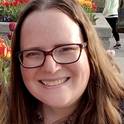Contribution to Book
Building Algebra Connections in Teacher Education
Proceedings of the Annual Meeting of the North American Chapter of the International Group for the Psychology of Mathematics Education
(2015)
Abstract
Given the move toward algebra-for-all across the U.S., most mathematics teachers find themselves teaching algebra in their first position upon completion of their teacher preparation program; in addition, they are expected to teach algebra to a more diverse population of students than ever before (Stein, Kaufman, Sherman, & Hillen, 2011). Given this movement and algebra’s role as a gatekeeper to college and career opportunities (e.g., Kilpatrik & Izsák, 2008; Moses & Cobb, 2001), it is imperative that we study how future teachers are prepared to teach algebra.
When future teachers learn algebra and learn to teach algebra, they need to make connections among mathematical topics and in relation to others, as they consider mathematics as a “whole fabric” (National Board for Professional Teaching Standards, 2010). In this poster, we report the findings from an investigation of future teachers’ opportunities to learn about such connections. Specifically, our research question is “What opportunities do secondary mathematics teacher preparation programs provide to learn about connections related to algebra and algebra teaching? The algebraic connections of interest here include: (1) connections within algebra, (2) connections between algebra and other mathematical fields, (3) connections between algebra and non-mathematical fields, and (4) connections between college-level algebra and school algebra.
This study is being conducted as part of a larger mixed methods study (i.e., a national survey and five case studies of secondary teacher education programs) that investigated opportunities to learn about algebra, algebra teaching, equity issues related to algebra, and the algebra described in the Common Core State Standards for Mathematics. Data were collected from semi-structured instructor interviews, focus group interviews with pre-service teachers (PSTs), and course materials. To answer the research question of focus here, two members of the research team coded interview data for opportunities to learn related to the four types of algebra connections described above; connections that did not fit into these types were also noted.
Analysis of this data is ongoing; however, preliminary findings show that different types of opportunities to learn about algebra connections were found at all case study sites. Instructors and PSTs alike at Gamma University reported more attention to connections within algebra and between algebra and other mathematical field than to the other two types of connections. PSTs provided examples of such connections, along with how technology helped them connect algebra with geometry in the courses designed to link school and college mathematics.
It is only by investigating how PSTs are prepared to teach algebra that we can improve teacher education and effect the enduring challenge of students who are unprepared for the algebra required by college and career opportunities. This study is a step in that direction.
Keywords
- Building,
- Algebra,
- Connections,
- Teacher education
Disciplines
Publication Date
November 5, 2015
Editor
Tonya Gau Bartell, Kristen N. Bieda, Ralph T. Putnam, Kenneth Bradfield, and Higinio Dominguez
Publisher
Michigan State University
ISBN
978-0-692-54039-8
Citation Information
Jill Newton, Hyunyi Jung, Eryn M. Stehr and Sharon L. Senk. "Building Algebra Connections in Teacher Education" East Lansing, MIProceedings of the Annual Meeting of the North American Chapter of the International Group for the Psychology of Mathematics Education (2015) p. 261 Available at: http://works.bepress.com/eryn-stehr/8/
